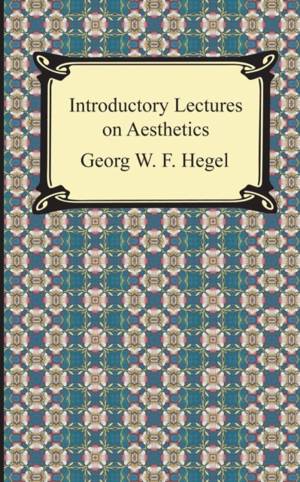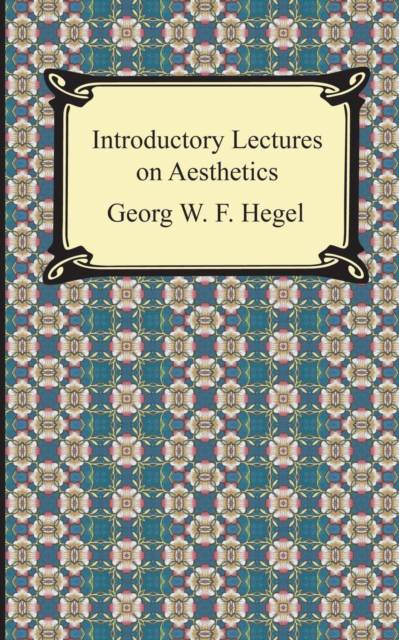
- Afhalen na 1 uur in een winkel met voorraad
- Gratis thuislevering in België vanaf € 30
- Ruim aanbod met 7 miljoen producten
- Afhalen na 1 uur in een winkel met voorraad
- Gratis thuislevering in België vanaf € 30
- Ruim aanbod met 7 miljoen producten
Zoeken
€ 16,45
+ 32 punten
Omschrijving
Georg Wilhelm Friedrich Hegel, a late 18th and early 19th century German philosopher, was one of the foremost thinkers of German Idealism. His historicist and idealist account of reality revolutionized European philosophy and was an important precursor to Continental philosophy and Marxism. He created a framework known as Absolute Idealism that was able to account for the relation of the mind, nature, art, the state, and history. Ultimately, he believed that the mind was comprised of several contradictory but unified ideas that did not cancel each other out or reduce each other's importance. According to Hegel, art revealed the fundamental nature of existence, but he felt that art and its significance were in decline. He wrote that art gives a physical and sensory depiction of the Absolute; it offers an effortless combination of form and content while giving viewers the ability to see the world in a form that doesn't actually exist. Hegel's "Introductory Lectures on Aesthetics," divides his most basic ideas on art into five chapters with multiple parts outlining his complex, but revolutionary, mindset and opinions. Like many philosophers, Hegel's words are written with other philosophers in mind; the arguments and counterarguments are in relation to the other philosophical theories of the time. Anyone interested in art history or philosophy will find this work highly informative.
Specificaties
Betrokkenen
- Auteur(s):
- Uitgeverij:
Inhoud
- Aantal bladzijden:
- 42
- Taal:
- Engels
Eigenschappen
- Productcode (EAN):
- 9781420947878
- Verschijningsdatum:
- 1/01/2013
- Uitvoering:
- Paperback
- Formaat:
- Trade paperback (VS)
- Afmetingen:
- 127 mm x 203 mm
- Gewicht:
- 54 g

Alleen bij Standaard Boekhandel
+ 32 punten op je klantenkaart van Standaard Boekhandel
Beoordelingen
We publiceren alleen reviews die voldoen aan de voorwaarden voor reviews. Bekijk onze voorwaarden voor reviews.











